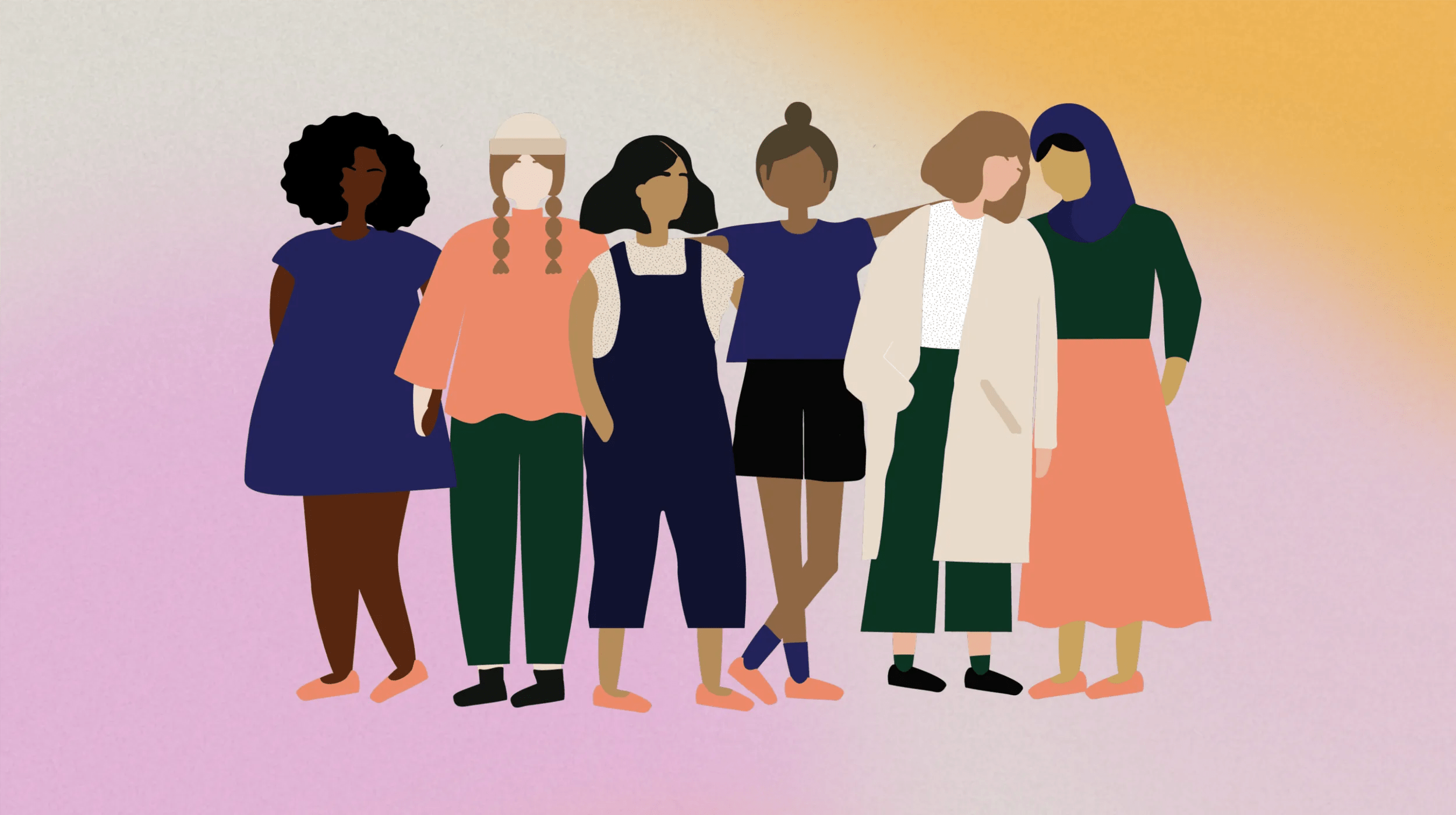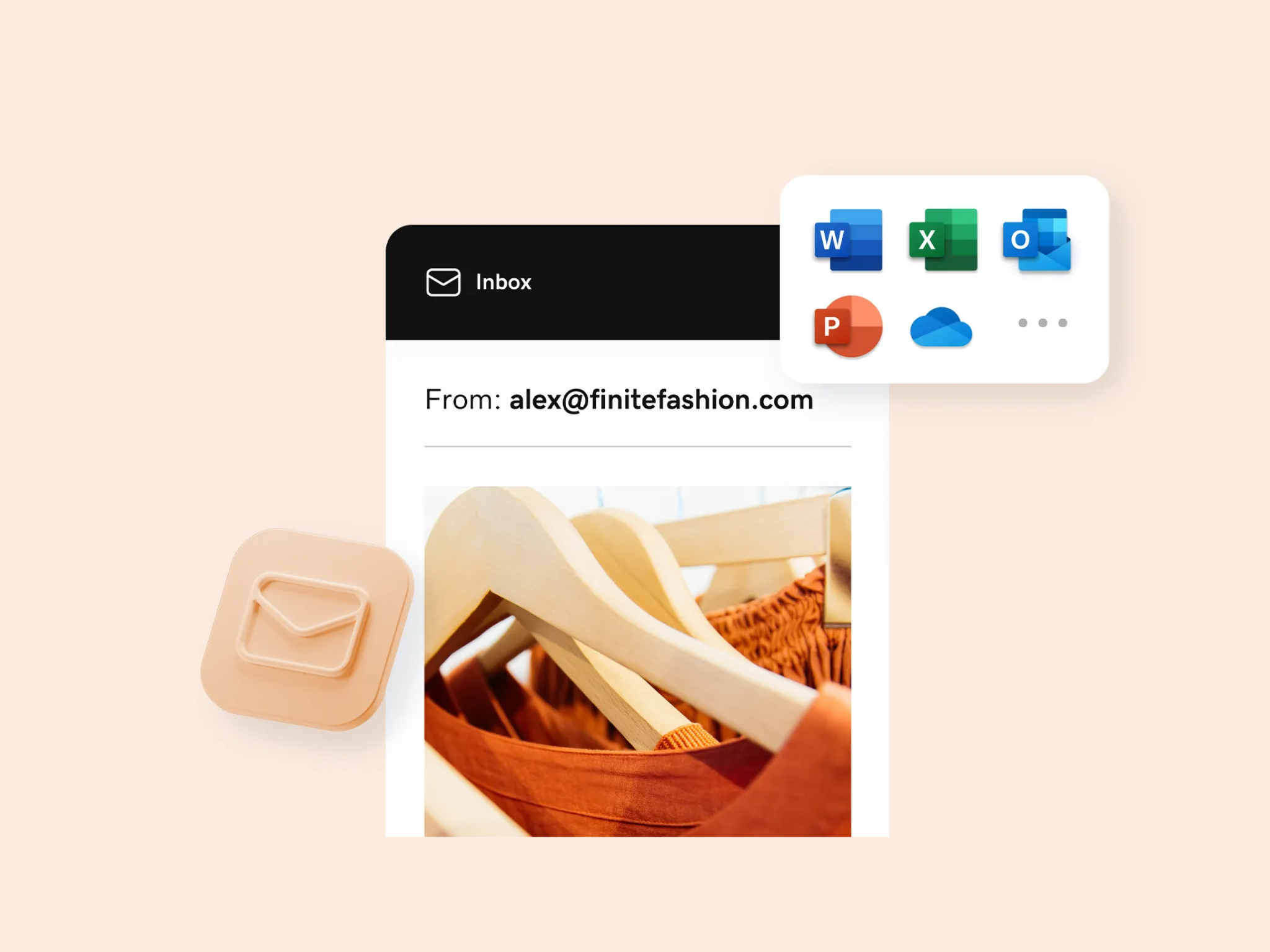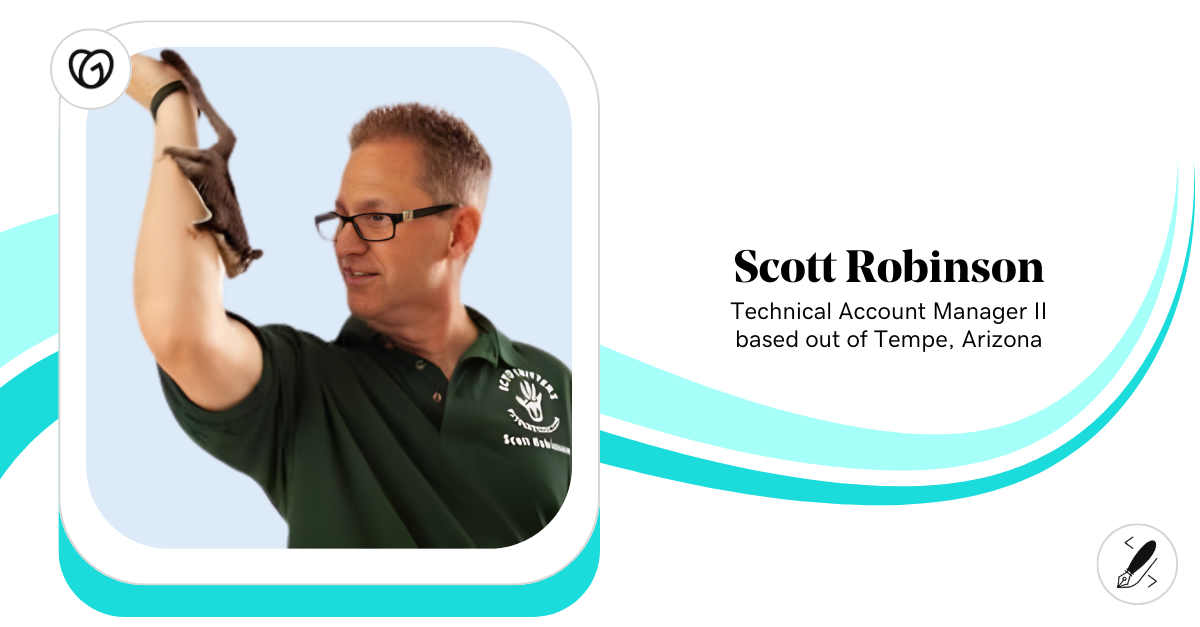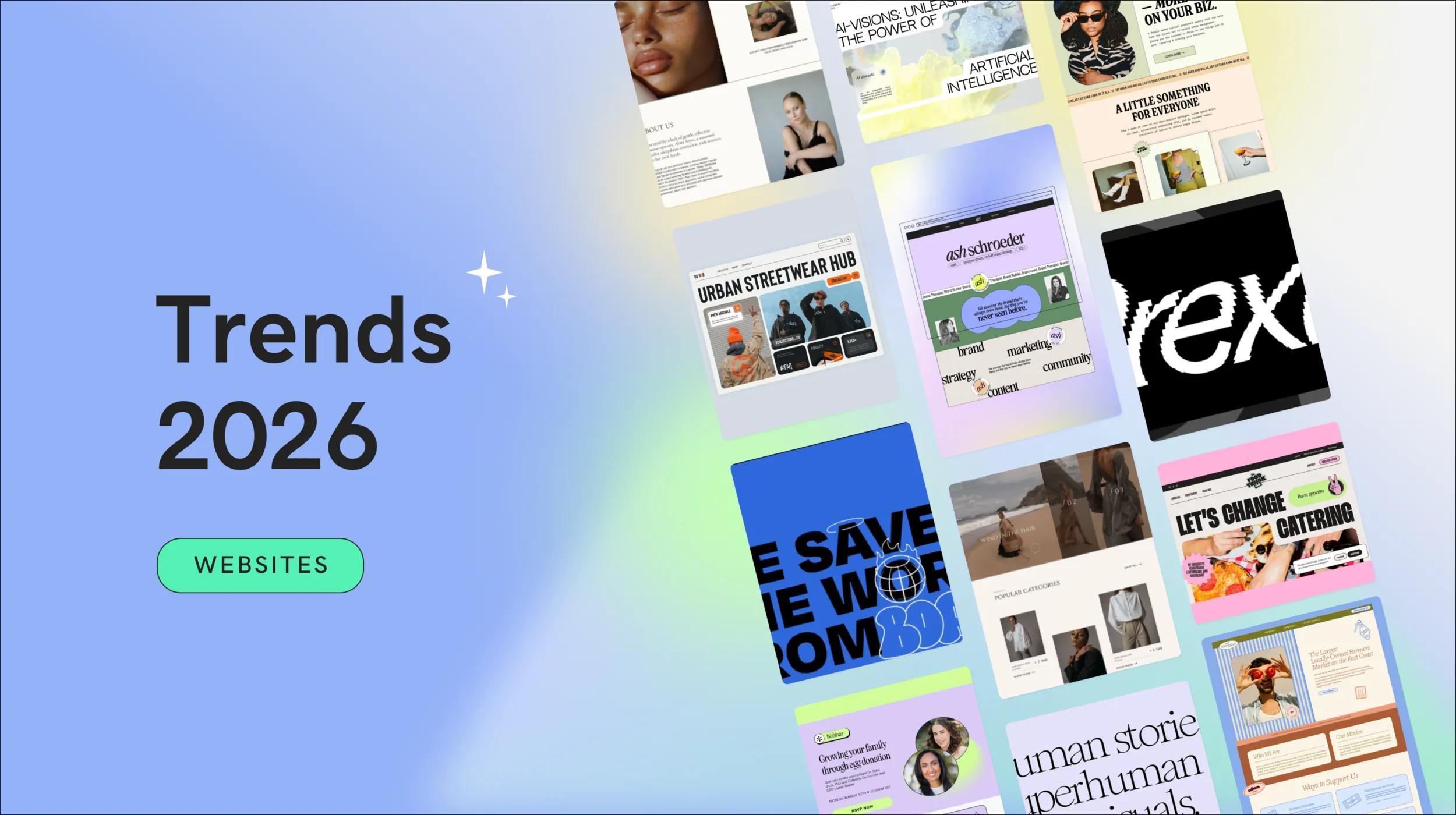With the business world trending towards automation, what can a business owner do to gain an upper edge and remain relevant? They need to learn how to build community.
When you build a community, your business becomes bigger than you. As a society, we’re all feeling more lonely and disconnected, and we need something to make us feel less alone.
So, that’s what we’re going to dive into throughout this post: how to build community. Let’s get into it!
Disclaimer: Opinions belong to the author alone and do not necessarily represent the views of GoDaddy. All trademark rights belong to their respective owners. Third-party trademarks are used here for demonstrative and educational purposes only; use does not represent affiliation or endorsement.
Why community building matters
Just look at any subreddit, and you will see the importance of learning how to build a community based on a common interest.
The Firefly subreddit has 150,000 members who are deeply connected to a show that ended more than 20 years ago. The folks in this thread still buy and stream this show and buy novelty books and products related to it all the time, chomping at the bit to showcase their finds with fellow fans.
The BlackPink subreddit regularly has fans losing their minds over everything the K-pop group releases, not to mention all of the merch that comes out. The 710,000-member-strong community sings the praises of their favorite group and buys up all things BlackPink-related.
Even the weight loss subreddit Weight Watchers has folks excited to share their latest recipes and milestones while helping boost the membership. Imagine 107,000 plus people involved in a thriving brand community, shouting your awesomeness from the digital rooftops and telling people how excited they are to purchase your product or service.
While these subreddits run without the products and services actually interfering, it shows how loyal a group can become to an idea. The lesson from this kind of loyalty is that building a strong community around your business or service is a great way to build positivity around your brand. Let's explore these advantages in detail.
Enhancing customer loyalty and trust
When you actively foster a community and engage with them, you create a sense of belonging among your customers. They begin to see your business as more than just a place to make purchases. Your business genuinely becomes a valued part of their lives.
This emotional connection fosters loyalty that goes beyond simple transactions. Customers are more likely to choose your business over competitors, even if it means paying a bit more or going slightly out of their way.
Community involvement builds trust. When people see a company contributing to local causes and engaging in honest, open communication, they're more likely to trust that business’ practices. This trust is especially important in an era when consumers are increasingly choosing brands that align to their values.
Creating a supportive business ecosystem
When you connect with other local businesses and organizations, you create a mutual support network. This ecosystem can lead to beneficial partnerships, shared resources, and collaborative problem-solving. This is especially helpful in times of economic uncertainty. Having a strong local business network can provide resilience and stability.
Increasing brand visibility and positive perception
Community involvement naturally increases your brand's visibility in a positive context. When your business name is associated with local events, charitable causes, and community improvements, for example, you gain exposure that traditional advertising simply can't buy. This kind of community building can lead to word-of-mouth recommendations, which are often more powerful than any marketing campaign.
Contributing to social good and corporate social responsibility
Today's consumers, especially younger generations, increasingly expect businesses to be socially responsible. Actively contributing to your community means meeting this expectation and demonstrating that your business values extend beyond profit. This commitment to social good can attract a like-minded group of people who prioritize supporting ethical businesses.
Principles of authentic community building
Focusing on key principles that foster real connections and trust is essential for genuinely building a community around your business. Let’s explore a few of these principles.
Genuine engagement
The foundation of community building is authentic engagement. This means going beyond superficial interactions to create meaningful connections with community members.
Active listening and responsiveness: Take the time to truly listen to your customers, employees, and active members.
What are their needs, concerns, and aspirations?
Use this information to guide your business decisions and community initiatives. Community members who feel heard are more likely to engage with and support your business.
Personal interactions and relationship building: Make an effort to know your customers and community members as individuals. They should be more than transaction numbers on a spreadsheet. They should be real people with hopes and dreams using your products and services to solve a need in their life.
Whenever possible, remember their names, their preferences, and their stories. Even if you’re using software like Customer Relationship Management (CRM) systems to help you with this, personal touches can transform a casual customer into a loyal advocate for your business.
Transparency and integrity
We live in an age of information overload. That’s why transparency and integrity are more important than ever.
Open communication: Be clear and honest about your business practices, successes, and challenges.
Think behind-the-scenes stories on social media and “day in the life” posts on LinkedIn. People like to see the real things happening in businesses to feel more deeply connected to the brand.
Simple updates like this help customers remember that real people are behind the products and services they purchase.
You’ve probably seen companies do this yourself. For example, they discontinued a product people loved. Then, they share something on social media, such as, “We heard you! We’re sorry! It’s back!”
This kind of openness builds trust and respect within your community. It lets them know you’re listening and will respond.
Honesty in business practices: Ensure that your business operations align with your stated values.
If you claim to prioritize environmental sustainability, for example, make sure your practices reflect this commitment.
Consistency between your words and actions is crucial for maintaining community trust.
Inclusivity
A thriving community is one where everyone feels welcome and valued. Listen to what your community needs and work to include as many people as possible.
Diverse representation and participation: Actively seek out and include diverse voices in your community-building efforts. This might mean partnering with underrepresented business owners, ensuring your events are accessible to people with disabilities, or offering materials in multiple languages.
Creating a welcoming environment for all: Make sure your physical space (if applicable) and your online presence are welcoming to all community members. This could involve training staff on inclusive customer service, using inclusive language in your communications, establishing an accessible user experience, or making physical accommodations in your store or office.
Strategies for building community
Now that we've covered the principles of community building let's explore specific strategies you can implement to foster strong community connections.
Local partnerships and collaborations
Partnering with other local businesses and organizations is a powerful way to build a new community while also potentially expanding your customer base.
Partnering with local businesses for events: Organize joint events that benefit multiple businesses.
For example, a local bookstore could partner with a café for author readings, or a fitness studio could team up with a health food store for wellness workshops.
These collaborations create unique experiences for community members while showcasing multiple local businesses.
Collaborative marketing campaigns: Pool resources with other local businesses for marketing initiatives.
This could involve creating a local business directory, running a "shop local" campaign, or organizing a neighborhood discount program. These efforts not only save money but also reinforce the idea of a united local business community.
Hosting and participating in community events
Events are excellent opportunities to bring people together and showcase your business' community involvement.
Organizing local events and workshops: Host events that align with your business expertise and community interests. A hardware store might offer DIY home repair workshops, while a bakery could host decorating classes.
These events provide value to community members while positioning your business as a local expert.
Sponsoring community festivals and fairs: Support community needs through sponsorship or active participation.
This could involve setting up a booth at a local fair, sponsoring a little league team, or helping to organize a neighborhood cleanup day. Activities like this increase your visibility while demonstrating your commitment to the community.
Customer-centric initiatives
Building community starts with your existing customer base. Implement programs that make your customers feel valued and connected to your business.
Loyalty programs and customer appreciation events: Create a loyalty program that rewards repeat customers. Go beyond simple punch cards by offering unique experiences or personalized rewards.
Host customer appreciation events to thank your loyal patrons and create opportunities for them to connect with each other.
Creating spaces for customer feedback and suggestions: Actively seek out and act on customer feedback. This could involve regular surveys, suggestion boxes, online community platforms, or social network forums.
When you implement changes based on customer input, make sure to communicate this back to your customers. This shows that you value their opinions and are responsive to their needs.
Technology and community building
Technology plays a vital role in modern community building. Leverage customer data to create personalized community experiences. This could involve tailoring event invitations or content recommendations based on individual interests and past interactions.
Artificial Intelligence (AI) and Machine Learning enhances community management by:
- predicting trends
- automating responses to common queries, and
- identifying potential issues before they escalate
Virtual and Augmented Reality technologies also offer exciting possibilities for community engagement. For example, virtual town halls or augmented reality scavenger hunts can help bring your community together.
Pro tip: Consider developing a mobile app for your community.
This can serve as a central hub for community news, events, and interactions, making it easier for members to stay connected and engaged.
Alternatively, you could set up a community group on Slack or Discord. Using technology to foster community is a great way to keep your customers engaged, and get direct feedback.
Industry-specific community-building strategies
Different industries may require unique approaches to community building. For example:
| Retail and hospitality | You may want to focus on creating welcoming spaces and exceptional customer experiences that foster a sense of belonging. |
| Professional services firms | Might emphasize thought leadership and educational initiatives that benefit the community. |
| Tech companies and startups | Could engage in mentorship programs or coding workshops for local students. |
| Manufacturing and industrial businesses | Might focus on workforce development initiatives or environmental stewardship. |
| Healthcare and wellness businesses | Could organize community health fairs or support groups. |
Tailor your community-building strategies to leverage your industry expertise and address specific community needs related to your field.
Leveraging social media and online platforms
Online platforms offer powerful tools for community building. Use these platforms to extend your community beyond physical boundaries.
Engaging content creation
Share behind-the-scenes content: This goes back to the transparency and integrity principles we discussed earlier. Behind-the-scenes content gives your audience a peek behind the curtain of your business operations.
This could include employee spotlights or content development processes like this one:
This type of content humanizes your brand and helps customers feel more connected to your business.
Highlight community stories and testimonials: Share stories from your customers and community members. This could involve featuring a "customer of the week," sharing how your products or services have impacted people's lives, or highlighting local heroes.
Stories like this create emotional connections and showcase the real-world impact of your business.
Online communities and groups
Creating and nurturing online community groups: Start a Facebook group or online forum for your customers or local community members. This space can be used for discussions, sharing information, and fostering connections.
Actively moderate and participate in these groups to ensure they remain positive and valuable spaces.
Participating in relevant local online forums: Engage in existing online communities related to your local area or industry.
Contribute valuable insights, answer questions, and build relationships with community members. Remember to focus on being helpful rather than promotional in these spaces.
A fabulous example of this is podcast hosting companies actively participating in the podcasting subreddit. You can regularly see posts from team members that work at Buzzsprout, RSS.com and Transistor.fm answering questions, and helping the community learn how to start and grow a podcast.
Social media campaigns
Hashtag campaigns to promote community involvement: Create and promote hashtags that encourage community engagement.
For example, a local cafe might start a #MyNeighborhoodCoffee campaign, encouraging customers to share photos of themselves enjoying coffee around the neighborhood.
Collaborating with local influencers: Partner with local social media influencers or community leaders to expand your reach. These collaborations can take many forms, from sponsored posts to joint community initiatives.
Global vs. local: adapting community building strategies
For businesses operating in multiple locations or cultures that want to learn how to build community, it's crucial to balance global brand identity with local community needs.
Understanding cultural differences in community engagement can help you tailor your approaches effectively.
Research local customs, traditions, and values in each community you serve. Adapt your strategies accordingly while maintaining your core brand identity. This might involve partnering with local organizations, celebrating local holidays, or addressing specific local concerns.
For businesses with multiple locations, consider creating a framework that allows for local autonomy within a broader community-building strategy. This can help ensure your efforts resonate locally while maintaining consistency across your brand.
Volunteering and philanthropy
Giving back to your community is a powerful way to build connections and demonstrate your commitment to local well-being.
Organizing volunteer days
Encouraging employees and customers to volunteer: Organize regular volunteer days for your staff and invite customers to join. This could involve activities like cleaning up a local park, serving at a soup kitchen, or participating in a charity run. Shared experiences like this can help to create bonds between your team and your customers while benefiting the community.
You don’t have to have a large team to do this, either. Even solopreneurs and small businesses can do it! All it really takes is coming up with an idea and then figuring out how to adapt it to your business.
Write down some ideas for how you can bolster community with philanthropy and you just might surprise yourself with what you come up with.
Partnering with local non-profits: Build relationships with local charitable organizations. Offer your business's resources or expertise to support their missions. This could involve donating products, providing pro bono services, or offering your space for fundraising events.
Charitable contributions
Donating a portion of profits to community causes: Consider implementing a program where a percentage of your profits goes to local charities. Let your customers know about this initiative and even allow them to choose which causes to support. This involves your customers in your philanthropic efforts and demonstrates your commitment to giving back.
YouGov reported, “More than two in five consumers across markets (45%) say they are more likely to buy from a brand that gives a cut to charity.”
When you make people feel good about their purchases, it’s easier to convince them to buy.
Organizing fundraising events: Host events that raise money for local causes. This could be anything from a charity auction to a benefit concert. These events bring the community together for a good cause while associating your business with positive social impact.
Crisis management and community support
Your role as a community builder becomes especially crucial during times of crisis. Whether it's an economic downturn, a natural disaster, or a public health crisis, your business can play a vital role in supporting and strengthening the community.
During economic challenges, consider how you can help build community resilience. This might involve offering skills workshops, partnering with local job placement services, or providing resources for small businesses.
In the event of natural disasters, your business could be a hub for coordinating relief efforts, disseminating information, or providing essential services. During public health crises, you might focus on supporting vulnerable community members, promoting health and safety measures, or adapting your services to meet changing community needs.
Educating and empowering the community
Sharing knowledge and resources is a powerful way to build community while positioning your business as a local leader.
Workshops and training sessions
Offering skill-building workshops: Host workshops that teach valuable skills related to your business area. A garden center might offer classes on sustainable gardening, while a tech company could provide coding workshops for local students. These sessions provide value to community members while showcasing your expertise.
I personally did this for The Centre for Women in Tampa, FL a few years ago. I taught a workshop on how to start a business as a blogger for the community. I didn’t charge anything for the course, and it was a great way for me to interact with my local community, while helping others learn a new skill.
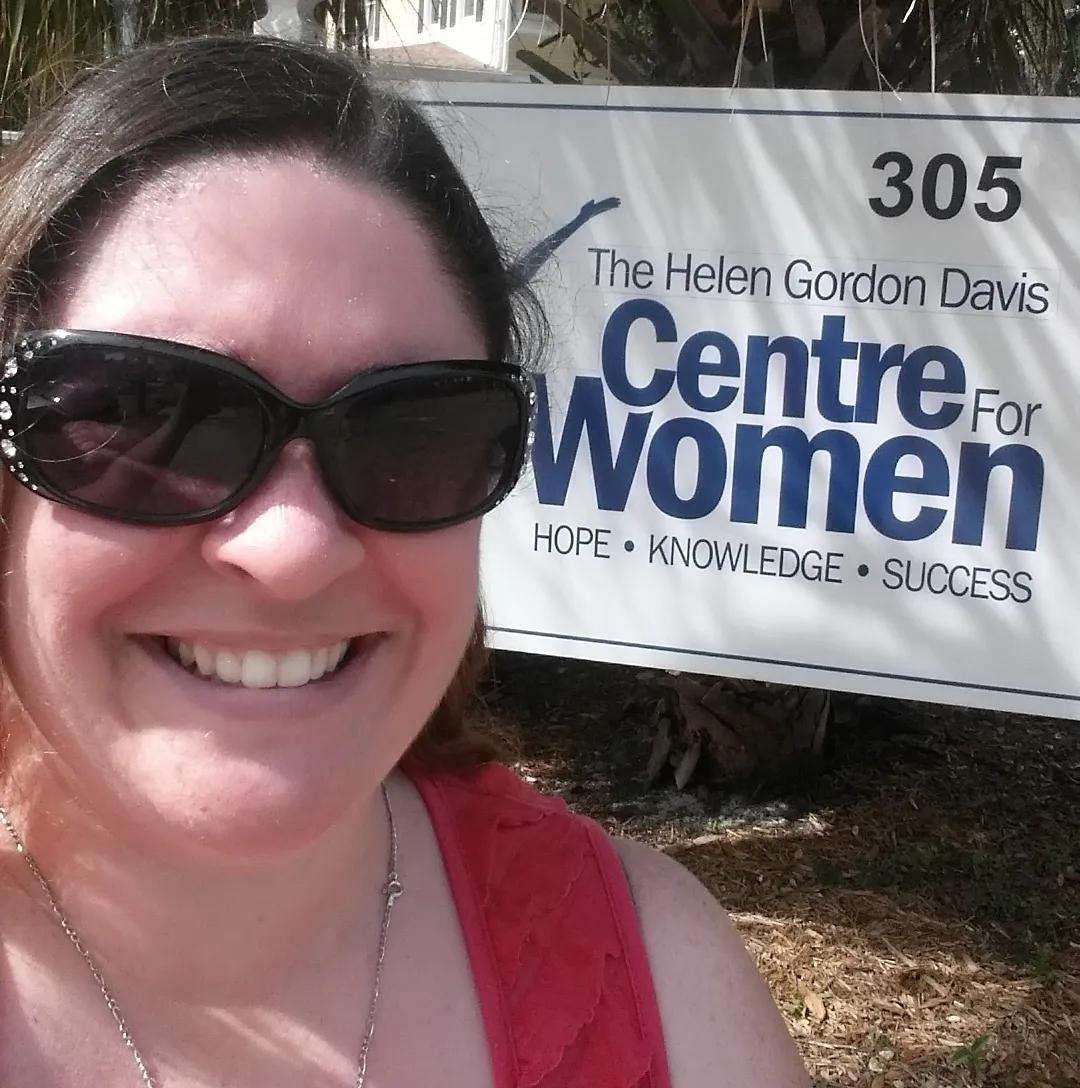
Hosting educational seminars on relevant topics: Organize talks or panel discussions on topics of interest to a learning community. This could involve bringing in expert speakers or moderating discussions on local issues. These events position your business as a community hub for learning and discourse.
Mentorship and support programs
Providing guidance for local entrepreneurs: If you're an established business owner, consider mentoring aspiring entrepreneurs in your community. Share your experiences, offer advice, and provide networking opportunities. This not only helps individuals but also contributes to the overall health of your local business ecosystem.
Supporting youth programs and initiatives: Get involved with local schools or youth organizations. This could involve offering internships, participating in career days, or sponsoring educational programs. By investing in young people, you're building positive associations with your brand among future customers and potential employees.
Future trends in community building
Stay ahead of the curve by keeping your ear to the ground about future trends in community building. For example, the rise of remote work is reshaping local business communities, creating both challenges and opportunities for engagement. Consider how you can support and connect with remote workers in your community.
Sustainability and environmental concerns are increasingly important to many communities. Think about how your business can contribute to local sustainability efforts or promote environmentally friendly practices.
The role of blockchain and cryptocurrencies in local economies is also an emerging trend worth watching. These technologies could potentially create new ways for businesses to engage with and support their communities.
As Gen Z and future generations become a larger part of your customer base, be prepared to adapt your community-building strategies to meet their expectations. This might involve increased focus on social and environmental issues, or new forms of digital engagement.
Challenges and solutions in community building
I’m not going to sugarcoat this. Building a strong community around your business isn't always easy. Let’s take a look at some common challenges you might face and strategies to overcome them.
Overcoming initial skepticism
Building trust through consistent actions: Some community members might initially be skeptical of your motives for community involvement. Overcome this by being consistent in your efforts and transparent about your intentions. Let your actions speak louder than your words.
Demonstrating long-term commitment: Show that your community involvement isn't just a short-term marketing strategy. Make long-term commitments to causes or initiatives.
This could involve signing multi-year sponsorship agreements or setting and publicly sharing long-term community impact goals.
Balancing business goals with community needs
Aligning business objectives with community interests: Look for ways where your business goals and community needs intersect. For example, if you're a fitness studio looking to expand your client base, and there's a community need for accessible health education, you could offer free community health classes. This serves both your business interests and community needs.
Ensuring mutual benefit in collaborations: When partnering with other organizations or businesses, make sure the arrangement benefits all parties. Be clear about expectations and desired outcomes from the start. Regular check-ins can help ensure the partnership remains mutually beneficial over time.
Sustaining community engagement
Keeping the momentum through regular activities: Consistency is key in community building. Develop a calendar of regular community activities or touchpoints to maintain engagement. This could involve monthly volunteer days, quarterly community meetings, or annual celebrations.
Innovating to keep community interest alive: Be open to new ideas and willing to evolve your community-building efforts. Regularly seek feedback from community members about what's working and what could be improved. Stay attuned to changing community needs and interests, and be willing to adapt your strategies accordingly.
Legal and ethical considerations in community building
As you build your community, it's essential to consider legal and ethical implications: Privacy concerns and data protection should be at the forefront of your strategy. Ensure you're compliant with relevant data protection regulations and are transparent about how you collect and use community members' data.
Develop clear inclusivity and non-discrimination policies to ensure your community is welcoming to all. Be transparent about any community partnerships or sponsorships to maintain trust. When it comes to marketing within your community, adhere to ethical practices that respect members' privacy and preferences.
Scaling community-building efforts
As your business grows, maintaining strong community connections can become more challenging. Develop strategies to scale your community-building efforts effectively. This might involve creating systems to ensure consistent community engagement across multiple locations or departments.
If you're considering franchising, think about how to maintain a local feel within a larger system. This could involve giving franchisees flexibility to engage with their local communities while providing overall guidance and resources.
Invest in training your employees to be community ambassadors. Equip them with the knowledge and skills to represent your business effectively in community interactions and to identify opportunities for deeper engagement.
Integrating community building into your business model
For maximum impact, community building should be integrated into your overall business model. Start by creating a community-centric business plan that outlines your goals, strategies, and metrics for community engagement.
Budget for community initiatives as you would for any other critical business function. This demonstrates your commitment and ensures resources are available for sustained engagement.
Consider creating roles specifically focused on community building, such as a Community Engagement Manager or a Director of Corporate Social Responsibility. These positions can help ensure that community building remains a priority as your business grows and evolves.
Overcoming burnout in community building
Community building can be rewarding, but it can also be demanding. To avoid burnout, implement self-care strategies. This might include setting boundaries, delegating tasks, or ensuring you have time for personal interests outside of work and community engagement.
Learn to delegate community responsibilities effectively. Empower your team members to take on leadership roles in community initiatives. This not only prevents burnout but also cultivates a company-wide culture of community engagement.
Remember to celebrate your successes, no matter how small. Acknowledge the positive impact you're making and use setbacks as learning opportunities. By maintaining a positive outlook and taking care of your mental health, you'll be better equipped to continue your community-building efforts in the long term.
Conclusion and next steps
Building a strong community around your business is more important now than ever before. In an age of digital disconnection and social mistrust, businesses owners like you have a unique opportunity — and responsibility — to foster genuine connections and contribute to the well-being of their local areas.
With the help of these principles and strategies I’ve shared here, my hope is that you can create meaningful relationships with those that share a common interest — your customers, neighbors, and fellow business owners.
Consider this your sign - it’s time to act!
Ready to start building your community? Here are some actionable steps to get you started:
| 1. Reflect on your business values and how they align with community needs. Identify areas where you can make a meaningful contribution. |
| 2. Reach out to a local organization or another business about potential partnerships. Start with a small, manageable collaboration. |
| 3. Survey your customers about what community issues matter most to them. Use this information to guide your community-building efforts. |
| 4. Plan a community event or workshop that showcases your business's expertise while providing value to attendees. You can plan these events online as well for maximum visibility and impact! |
| 5. Implement a customer feedback system and make a commitment to act on the input you receive. |
| 6. Start a social media campaign that encourages community engagement and showcases local stories. |
| 7. Set aside a portion of your profits for local charitable contributions and communicate this initiative to your customers. |
| 8. Join or create an online group for local businesses to share ideas and support each other. |
Remember, community building is not a one-time effort but an ongoing process. Start small, stay consistent, and be patient. Over time, you'll see your community grow stronger, more connected, and more supportive of your business.
The benefits of community building extend far beyond increased sales or brand visibility. When done authentically, it can lead to a more resilient local economy, a stronger support network for your business, and a genuine sense of belonging for you and your customers. And, the relationships you build and the positive impact you create will be well worth the investment.
